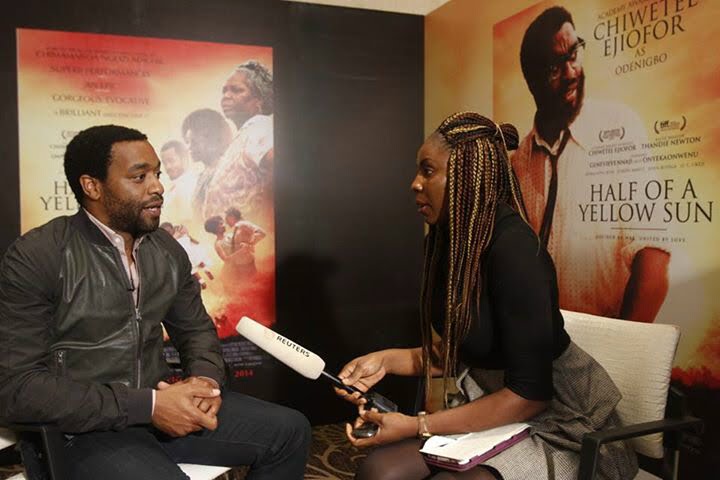 |
| Model posing for a photograph during a photo-shoot by A Nasty Boy magazine- Photograph courtesy: Akintunde Akinleye |
Wow! What a magazine. So bold! That was my first reaction when I first discovered the website of "A Nasty Boy". I knew right away it was a story worth telling. The controversial online magazine launched in February 2017. I found the stories intriguing. Boys who don't mind something extra and feel alive wearing makeup and dresses. Now that is something that many term as alien to our culture. A taboo. Photographs of men wearing makeup or clad only in denim miniskirts has provoked a strong response to the magazine from Nigerians on social media who say it promotes homosexuality.
Former Nigerian President Goodluck Jonathan signed the anti-gay bill into law in 2014. The bill criminalises same-sex relationships, containing penalties of up to 14 years in prison and bans gay marriage, same-sex "amorous relationships" and membership of gay rights groups.
But the founder, Richard Akuson says Nigerians who have said the online fashion magazine is a gay publication have misunderstood the website's agenda.
The 23-year-old law graduate says it is "an issue-based fashion publication that pushes for conversations around gender, feminism, masculinity.
Opinions are mixed on the streets of Nigeria. Many don't mind that they are exploring an alternative narrative while others say they should be banned.
Akuson says critics of the magazine were sticking to rigid definitions of masculinity and femininity that the publication seeks to subvert.
The online magazine has attracted interest beyond Nigeria where most of its readers are. 6,000 to 10,000 people visit the website each month.
The magazine is looking to expand the publication beyond its team of five freelance writers, an editor and pool of photographers.
With a print version in view by November which would be published twice each year, Richard
seeks to raise 25,000 U.S. dollars by late October using a crowdfunding campaign. With the funds, the organisation can scale up production and content to extend coverage to other African countries.
The 23-year-old law graduate says it is "an issue-based fashion publication that pushes for conversations around gender, feminism, masculinity.
Opinions are mixed on the streets of Nigeria. Many don't mind that they are exploring an alternative narrative while others say they should be banned.
Akuson says critics of the magazine were sticking to rigid definitions of masculinity and femininity that the publication seeks to subvert.
The online magazine has attracted interest beyond Nigeria where most of its readers are. 6,000 to 10,000 people visit the website each month.
The magazine is looking to expand the publication beyond its team of five freelance writers, an editor and pool of photographers.
With a print version in view by November which would be published twice each year, Richard
seeks to raise 25,000 U.S. dollars by late October using a crowdfunding campaign. With the funds, the organisation can scale up production and content to extend coverage to other African countries.
Richard was so welcoming and the story was an easy breeze.
Photographs courtesy: Akintunde Akinleye



